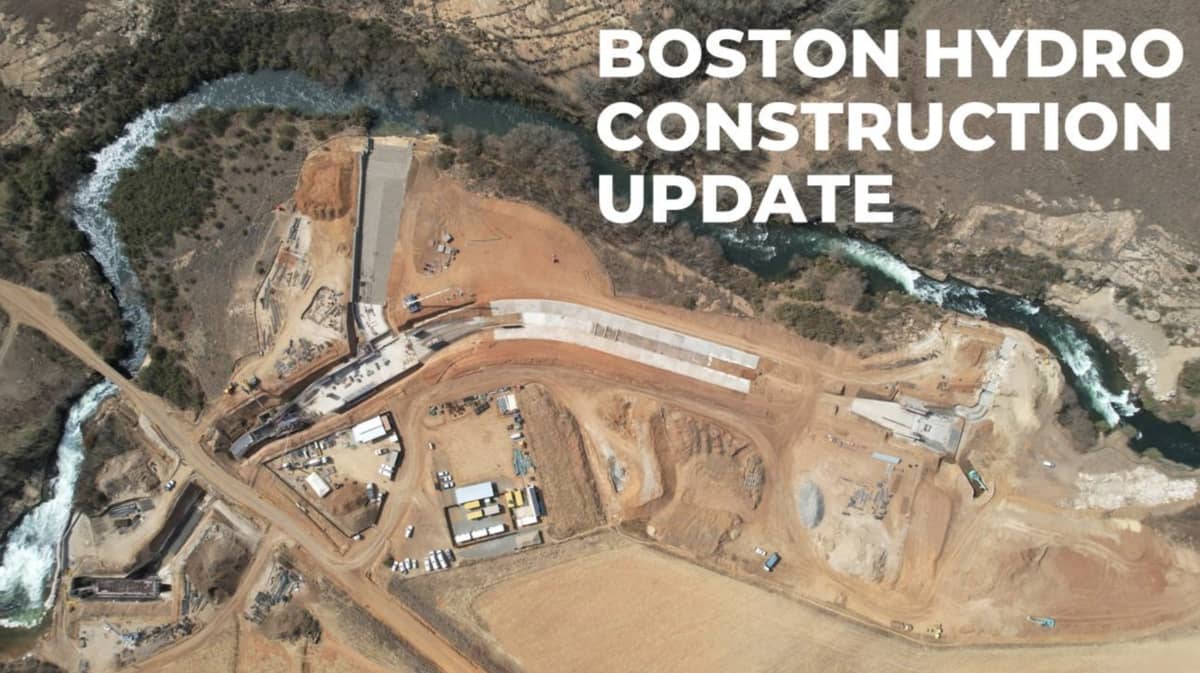Serengeti Energy’s Boston Hydro project on track to achieve commercial operation in 2025
Progress Update:
Almost a year into construction, Serengeti Energy is proud to announce significant progress on the construction of Boston Hydro project. The 5 MW run-of-river hydropower plant will be the largest of six hydropower plants along the Ash River, which forms part of the water transfer scheme between Lesotho and Gauteng. We are proud to announce that with the construction at about 50% complete, Boston Hydro is on track to become Serengeti Energy’s fourth successful hydro power plant in South Africa by Q3 2025. With key industry partners, Etana Energy and Growthpoint Properties, securing the electricity purchase under a wheeling arrangement, Boston Hydro plays a vital role in boosting sustainable energy development in South Africa while significantly contributing to achieving the region’s renewable energy goals.
Current Status of the Project:
The project is progressing according to schedule and is currently focused on the preparation for the water outage of the Lesotho Highland Water Project (LHWP), which will allow for in-river construction works. Scheduled from 1st October 2024 to 31st March 2025 the LHWP outage presents a rare opportunity to safely carry out the in-river works. During this period the project team will construct the diversion weir, which consists of a mass concrete spillway and earth embankment. To enable completion during the outage, the project team has employed an innovative construction methodology that incorporates precast elements to enhance the rate of construction and safety to the construction team. This forward-thinking approach ensures that the project stays on track while minimizing risks.
The Road Ahead:
The other significant area of focus for the Boston Hydro project is the powerhouse, which requires deep excavations into the hard rock, installation of over 150 tons of hydro-electrical equipment, and managing interfaces between multiple contractors, within a very confined space. The powerhouse is scheduled to be ready for installation of the double-regulated Kaplan turbine by early 2025. Other key equipment, such as the synchronous generator and dry-type transformer, will be installed shortly after. Preparation of the built-in parts for the hydro mechanical gates are progressing, with the gate installations expected to commence in October 2024. Boston Hydro is the third-generation hydropower plant developed and constructed by Serengeti Energy. Lessons learned from operating these facilities for nearly 15 years are incorporated in the development and construction phases. This boosts availability and reduces maintenance efforts, positively impacting the overall plant performance.


